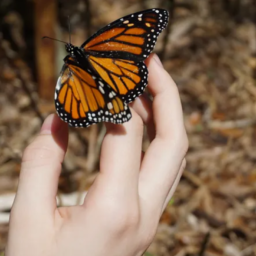
When the Parentified Child Becomes an Adult
by- Roxanne Guiney
We’ve all heard the compliments showered on independent and confident children. She’s so mature for her age. He always puts others first. She’s so self-reliant!
The problem? Those qualities might have come at the expense of their right to be children. The right to be cared for rather than be the caregiver, be unaware of the messiest adult situations, have needs, and receive rather than constantly give.
They were parentified.
The next problem? When those parentified children grow into adults, they might not have the coping strategies, soft skills, and emotional regulation they need to manage this later stage of life.
The Parentified Child
Parentification is when children become caregivers in their families and take on responsibilities that are inappropriate for their age, interfere with their growth, or are at the expense of well-being (Borchet et al., 2020; Newport, 2019). These responsibilities are often beyond their capacity, either because they lack the knowledge or the emotional maturity to perform these adult roles (Borchet et al., 2020; Newport, 2019). This can either be emotional, such as when a mother frequently expects her young son to listen to her romantic troubles, or instrumental, such as when a father requires his nine-year-old daughter to babysit her toddler siblings. It can either be parent-focused, when a child takes care of their parents, or sibling-focused, when a child takes care of their siblings (Newport, 2019). Regardless of the type, parentification is a form of abuse and exploitation that often stems from neglect. The stress created by this system and the de-prioritization of the children’s needs can cause developmental delays, lacking social skills, high rates of anxiety, and other emotional issues (Guha, 2021; Newport, 2019). These effects can have lasting consequences on the child that extend far into adulthood, impacting many if not all areas of their lives.
Emotional Health in Adulthood
Given the abundance of emotional difficulties that parentified children face, the matched emotional challenges they face in adulthood is no surprise. These adults carry a “Greater risk of anxiety, depression, substance use disorders, and eating disorders” (Newport, 2019). This is particularly true of adults who faced emotional parentification in childhood rather than instrumental (Hosier, n.d.). Adults who were emotionally parentified may be prone to angry outbursts, “Especially in situations which trigger, consciously or unconsciously, memories of having been abused in childhood” (Hosier, n.d.). Part of this may be neurological, as research has shown that adults who were parentified carry lasting changes to their brains. The continuous stress experienced in childhood “Shrink[s] the hippocampus, the part of the brain that regulates memory, emotion, and stress management” (Newport, 2019).
However, general anxiety may simply be the result of what the adult learned as a child: the world is stressful and dangerous, and no one would be there to help them (Guha, 2021). As children, their families expected them to handle challenges that they did not have the capacity to perform, and to do these tasks without the necessary support and guidance (Guha, 2021).
Relationships in Adulthood
Because parentified children often do not learn healthy boundaries and attachment, many have difficulties in their relationships as adults. They may have trouble trusting others or have an inappropriate sense of entitlement or authority” (Armas, 2022; Lewis, 2021; Newport, 2019). As both emotional and instrumental parentification teach children not to establish or respect boundaries, parentified adults tend to lack these skills (Guha, 2021). Perhaps because of this lack of trust and boundaries, parentified adults often develop an anxious or insecure attachment style (Lewis, 2021; Hosier, n.d.). They may also rely on passive forms of communication, and their overall communication skills may have been stunted by not devoting enough time to friendships as children (Guha, 2021).
Parentified adults who choose to have their own children may parentify their children in the ways their caretakers did to them (Lewis, 2021). This is usually not intentional, but simply a learned behavior. They tend to be less responsive to their children’s needs and turn to their children for emotional support (Lewis, 2021).
If the parentification was sibling-focused, adult relationships with their siblings are complicated. Although the siblings may continue to see the parentified child as their caretaker even after they’re grown, their relationships tend to be positive (Armas, 2022; Hooper et al., 2014; Lewis, 2021). In fact, sibling-focused parentification may even improve the quality of sibling relationships (Hooper et al., 2014).
Strengths in Adulthood
Although the independence and empathy that people tend to praise parentified children for come at a high cost, they are still useful skills. Adults who were parentified as children tend to have higher self-esteem, especially as the result of sibling-focused parentification and when they mature, they will eventually see some benefits of their parentification (Armas, 2022; Borchet et al., 2020). They are often resilient and confident they will achieve their goals (Armas, 2022; Borchet et al., 2020). When they seek to unlearn less adaptive behaviors that resulted from their parentified childhood, these positive traits and skills do not need to vanish! As an adult, a person who was parentified as a child is free to develop their own identity and pursue their own goals.
We at ARO are here to support you in your personal healing journey to complete well-being. We bring awareness and education to 13 different types of abuse including Narcissistic, Sexual, Physical, Psychological, Financial, Child, Self, Cyberbullying, Bullying, Spousal, Elderly, Isolation and Workplace, and help others heal and find peace. Please support our efforts by going to GoARO.org to learn how you can make an impact on the Abuse Care Community.
Sources
Armas, A. M. (2022). Parentification: The long-term effects on the parentified adult. Electronic Theses, Projects, and Dissertations, 1419. https://scholarworks.lib.csusb.edu/etd/1419
Borchet, J., Lewandowska-Walter, A., Połomski, P. et al. (2020). We are in this Together: Retrospective Parentification, Sibling Relationships, and Self-Esteem. Journal of Child and Family Studies, 29, 2982–2991. https://doi.org/10.1007/s10826-020-01723-3
Guha, A. (2021, July 31.) The parentified child in adulthood: Understanding the psychological impacts of being parentified as a child. Psychology Today. https://www.psychologytoday.com/us/blog/prisons-and-pathos/202107/the-parentified-child-in-adulthood
Lewis, R. (2021). What is parentification? Healthline. https://www.healthline.com/health/parentification
Hooper, L. M., Tomek, S., Bond, J. M., & Reif, M. S. (2014). Race/ethnicity, gender, parentification, and psychological functioning. The Family Journal, 23(1), 33–48.
Hosier, D. (n.d.). Parentification: A Closer Look at The Harmful Effects. Childhood Trauma Recovery. https://childhoodtraumarecovery.com/all-articles/parentification-a-closer-look-at-the-harmful-effects/
Newport Academy. (2019, September 16). How Parentification Impacts Teen Mental Health. https://www.newportacademy.com/resources/mental-health/parentification/
















